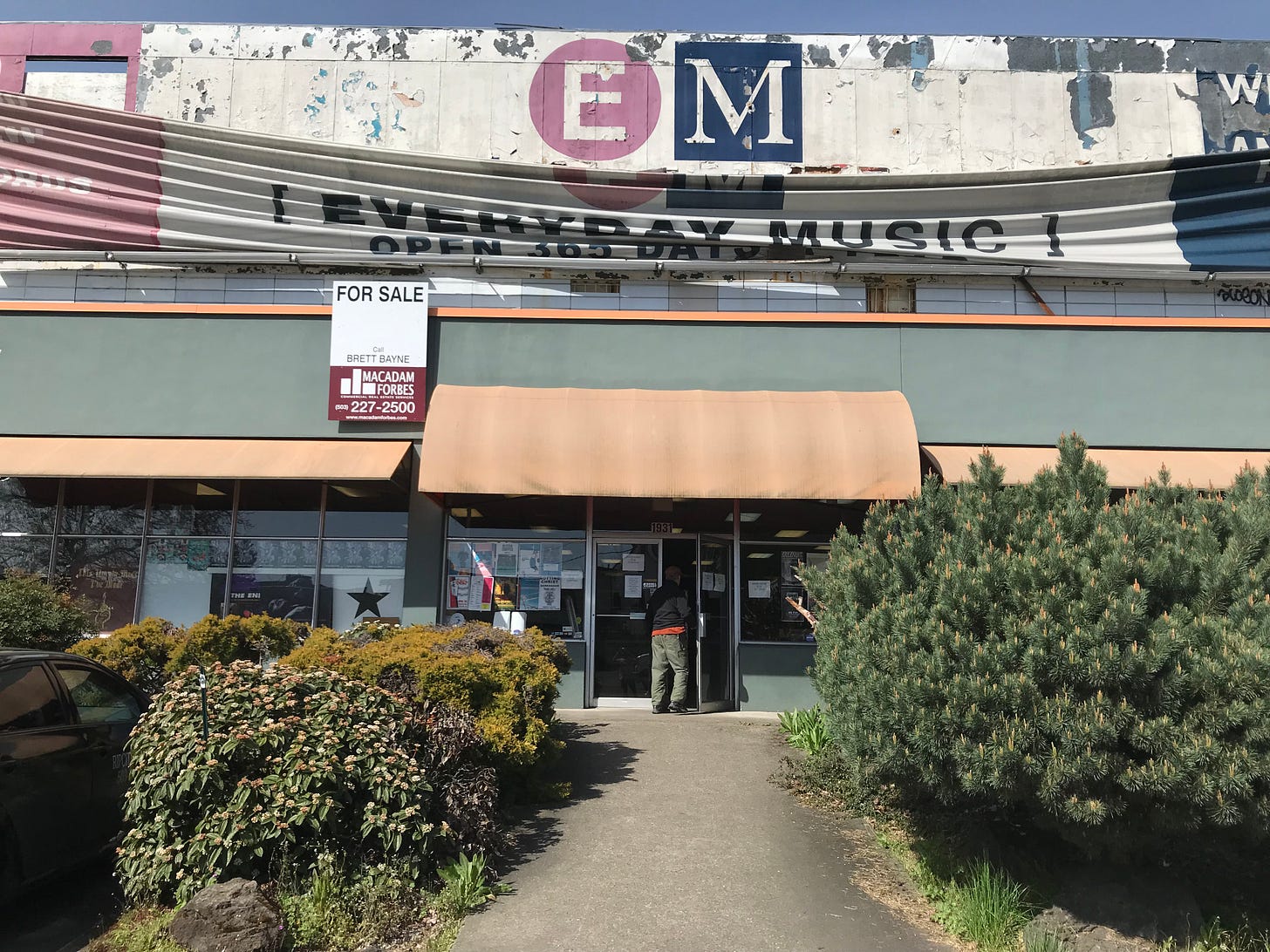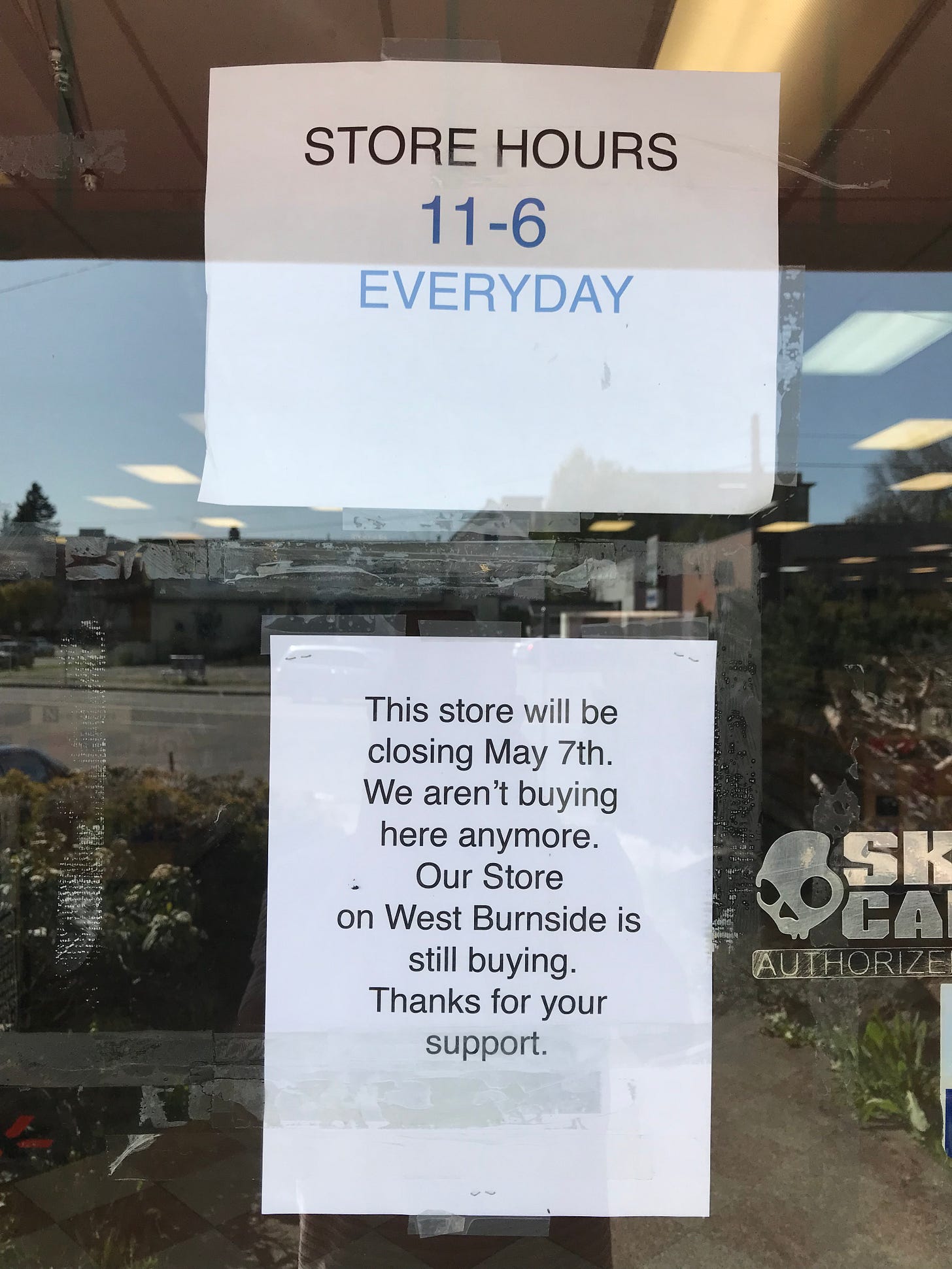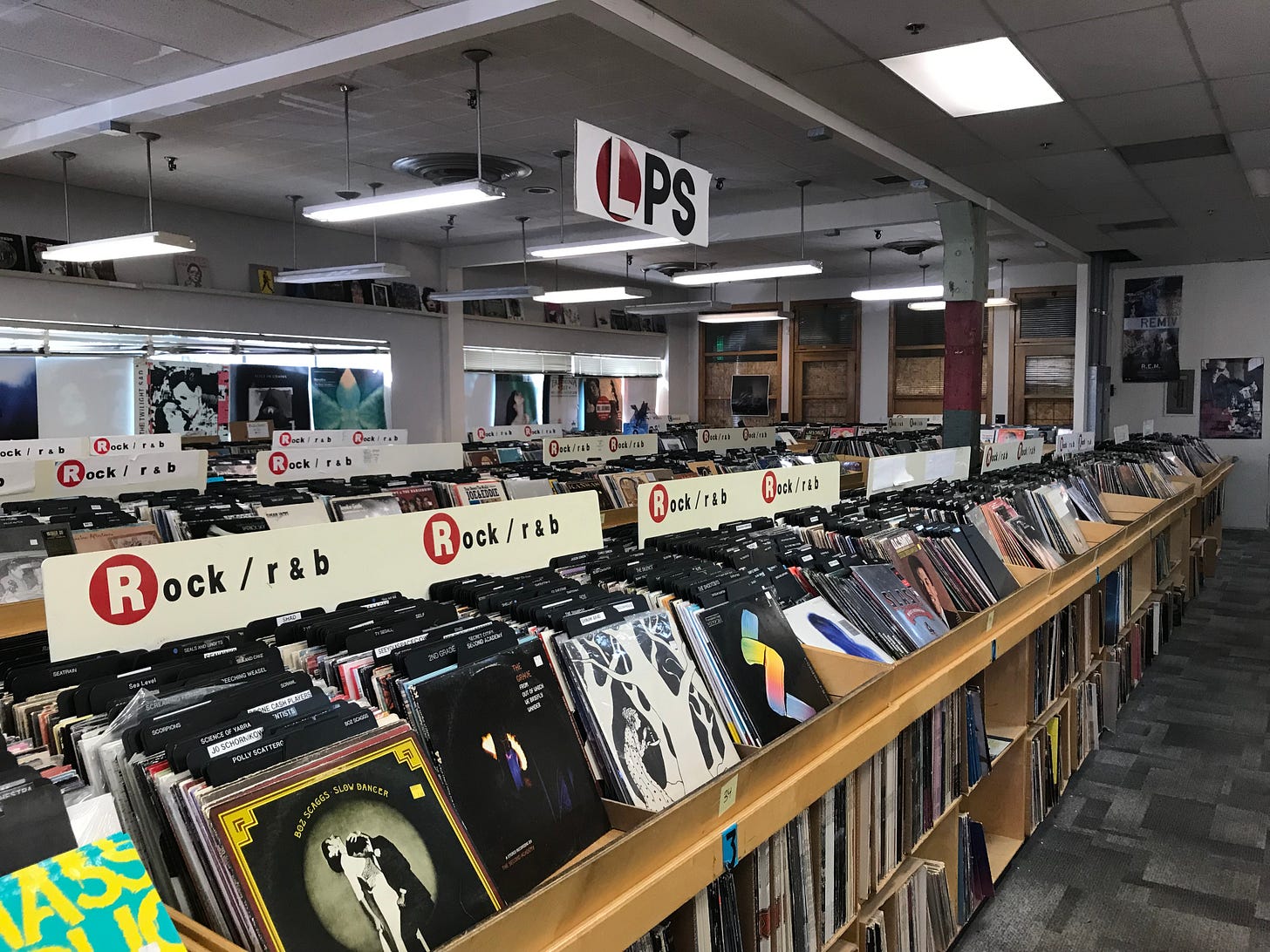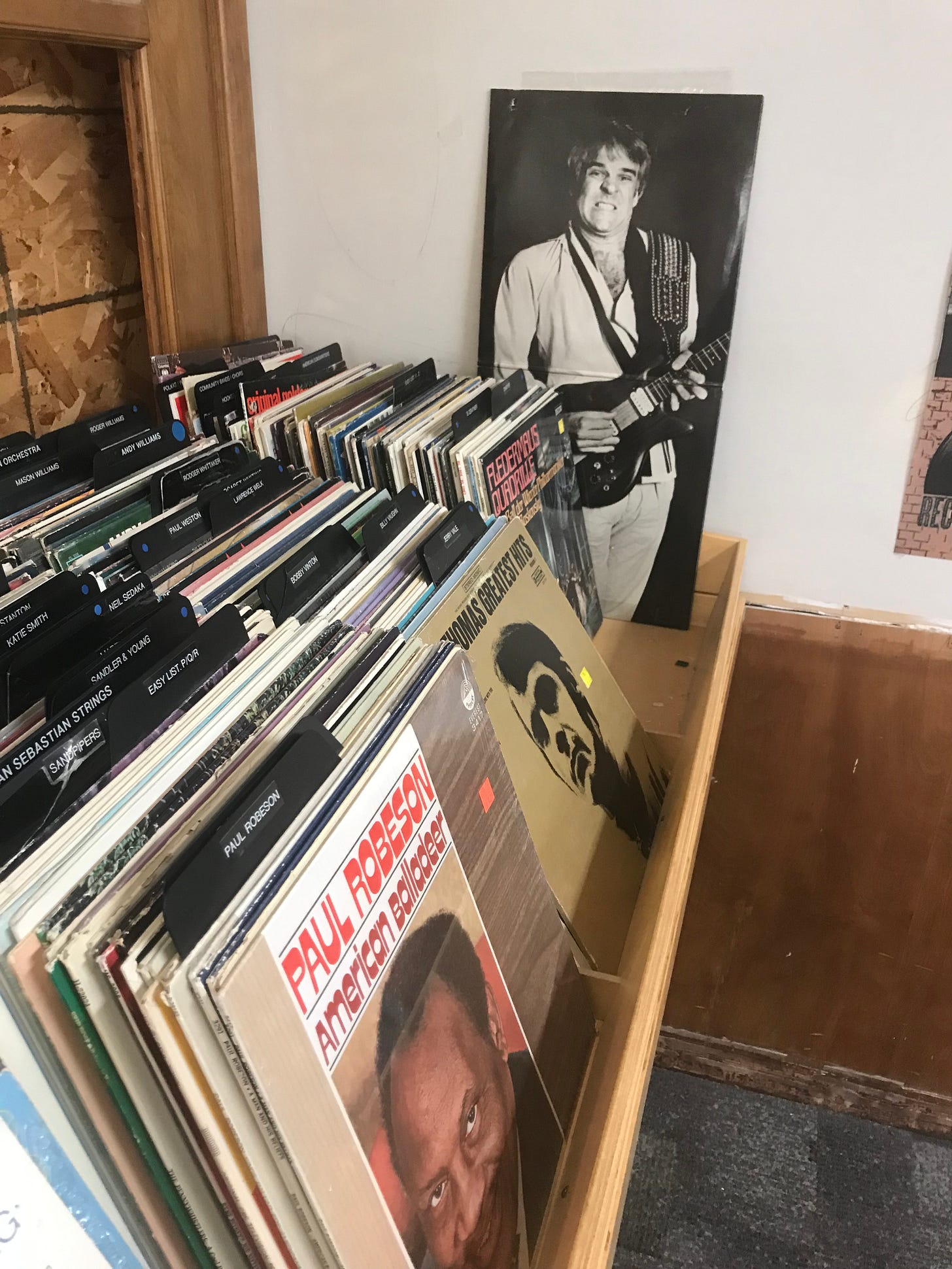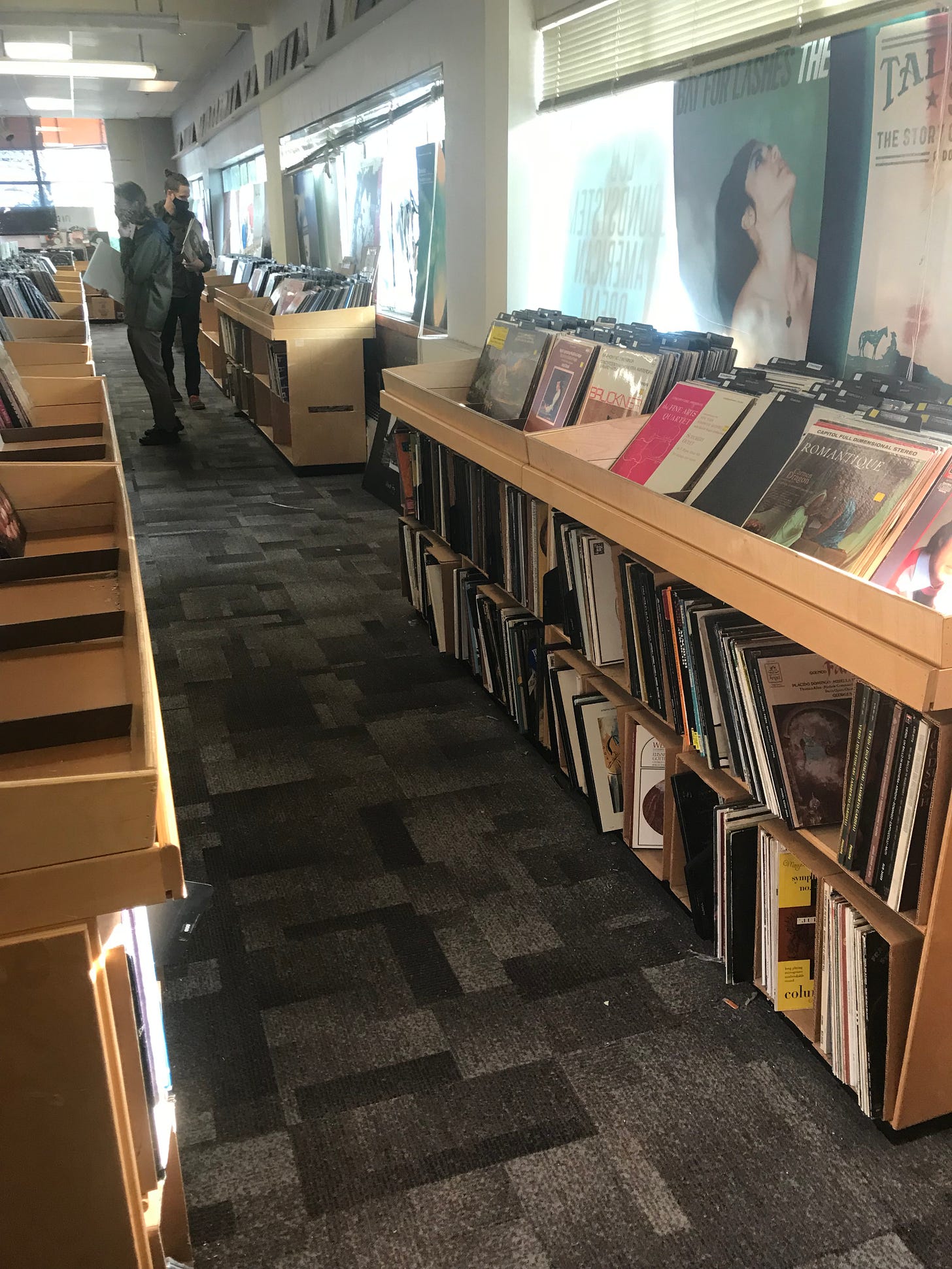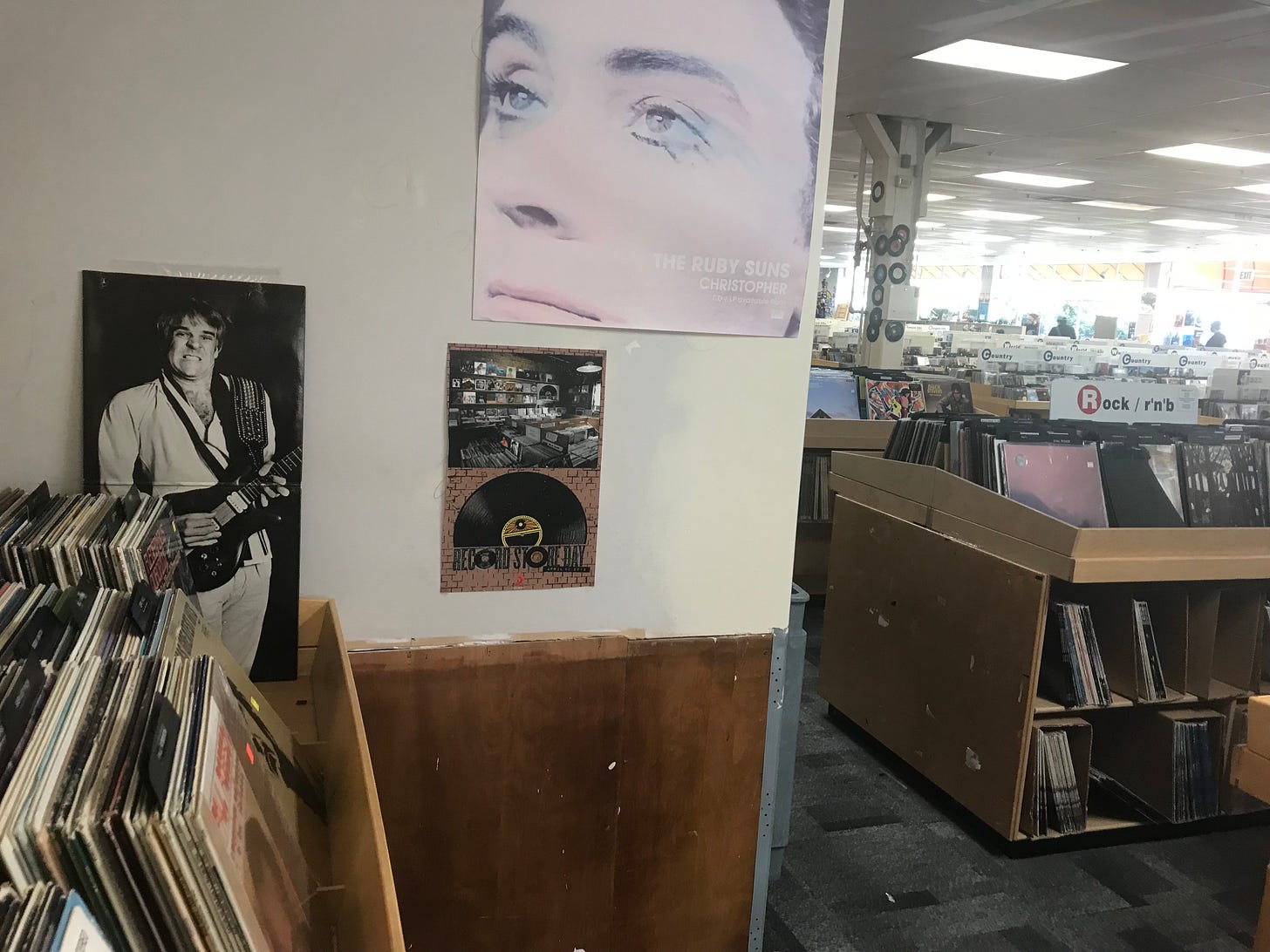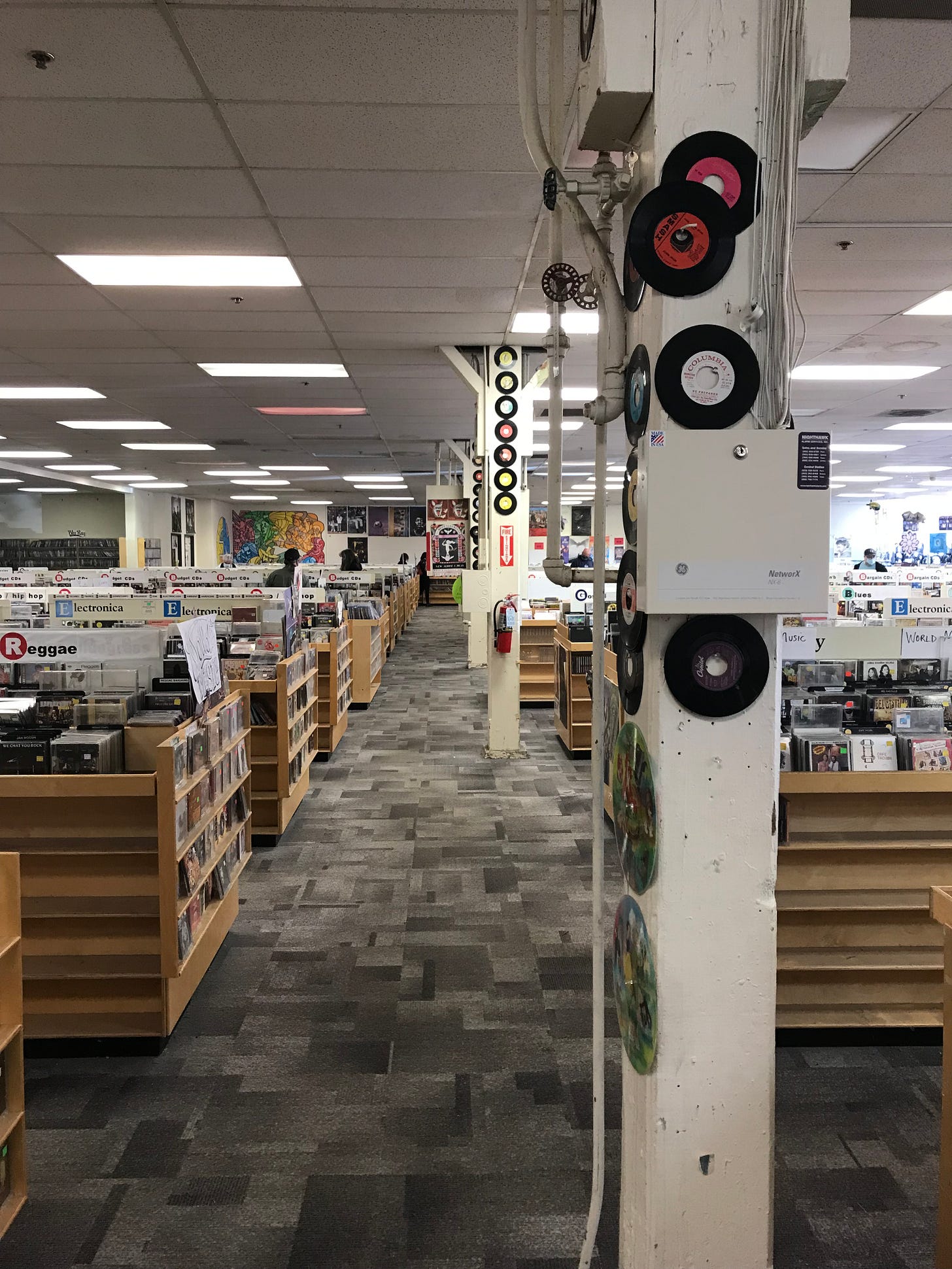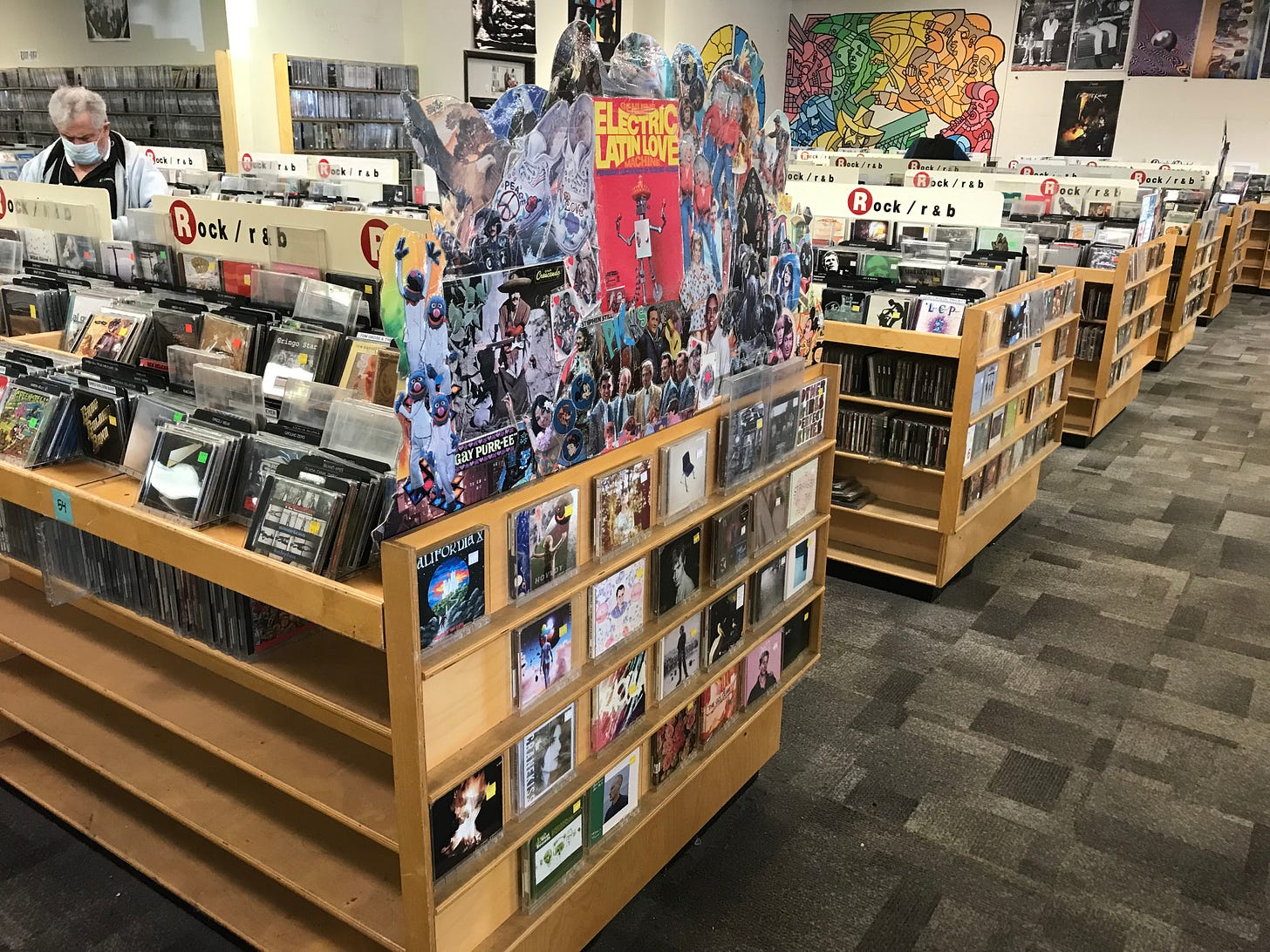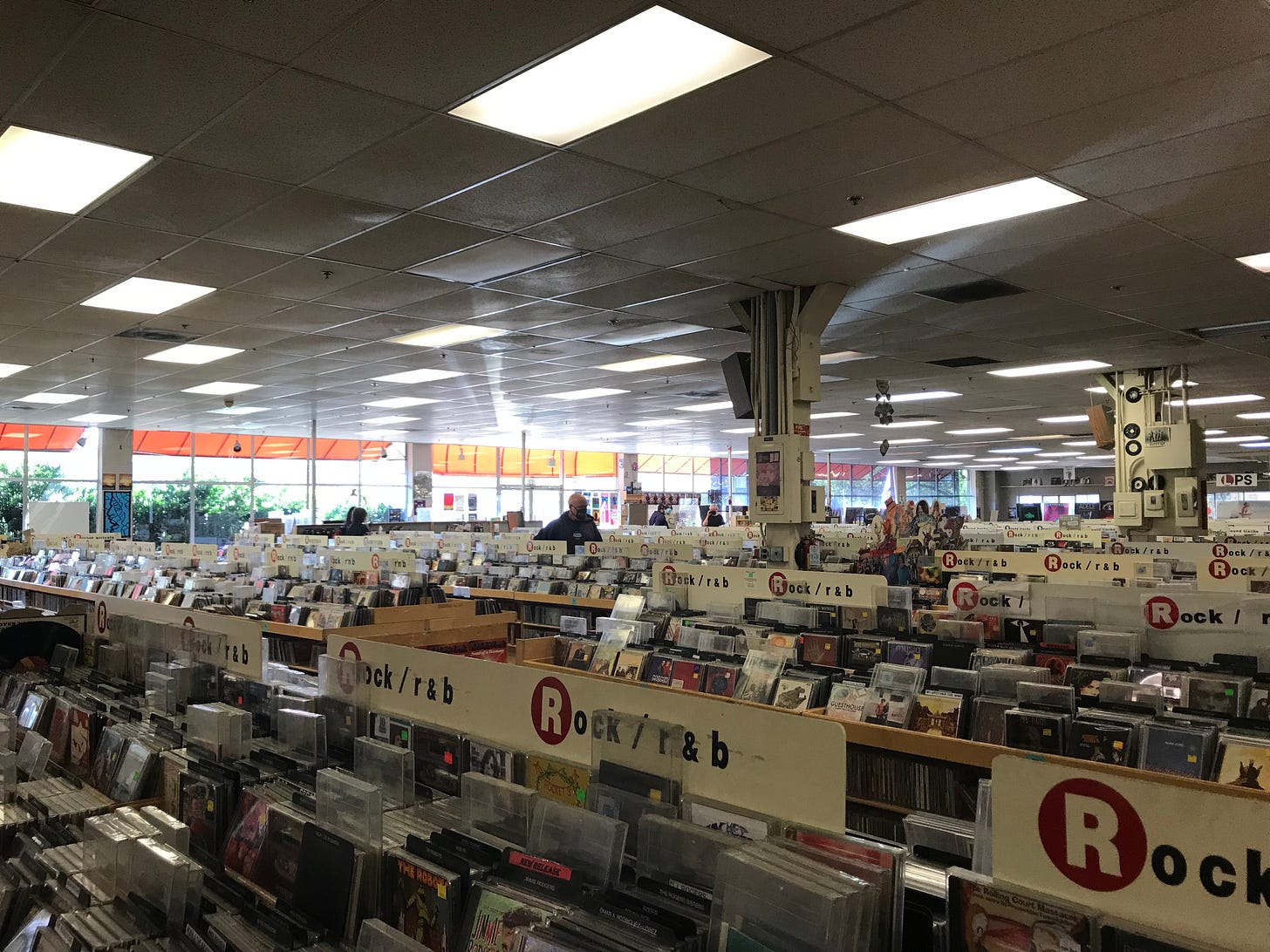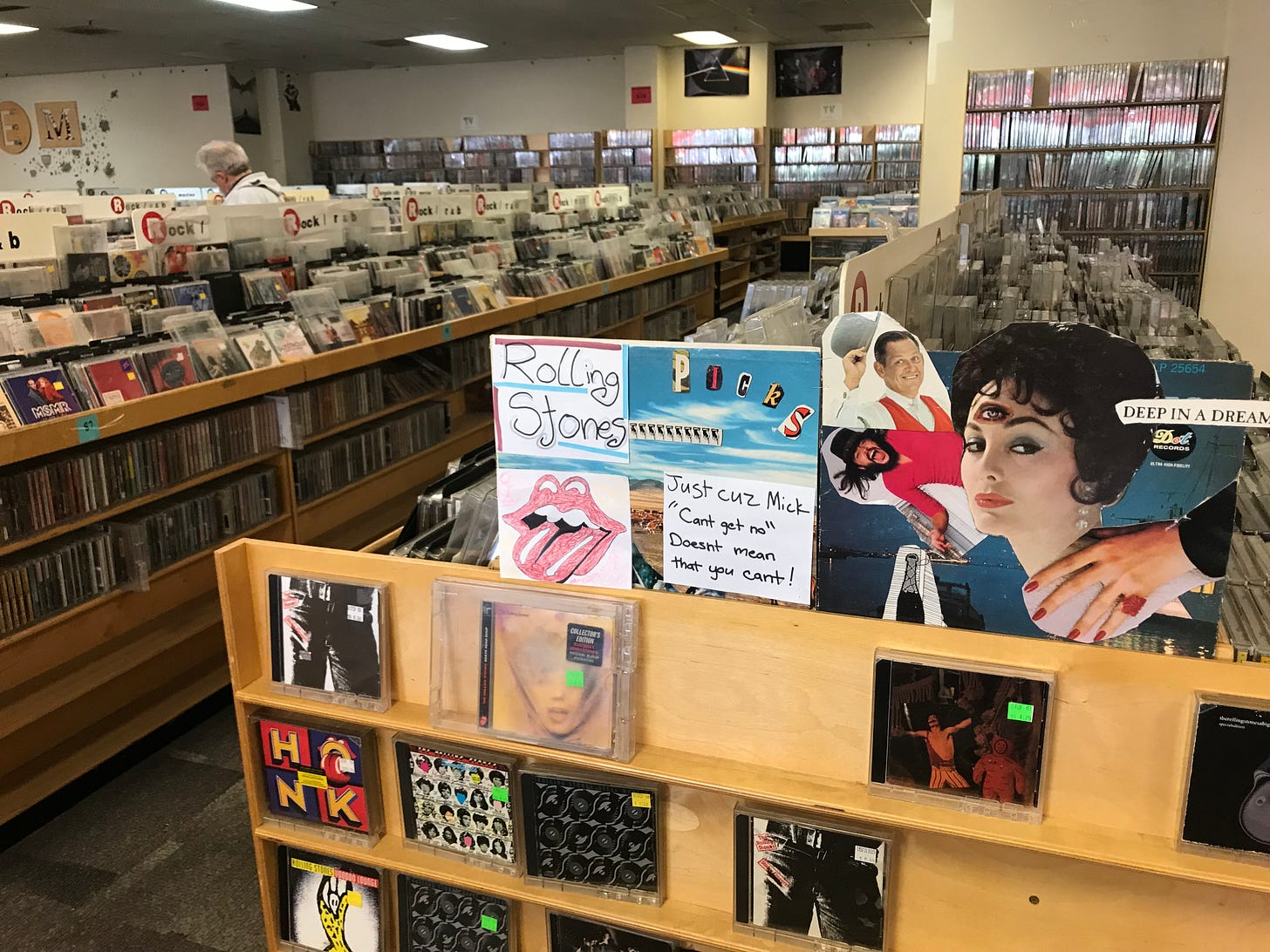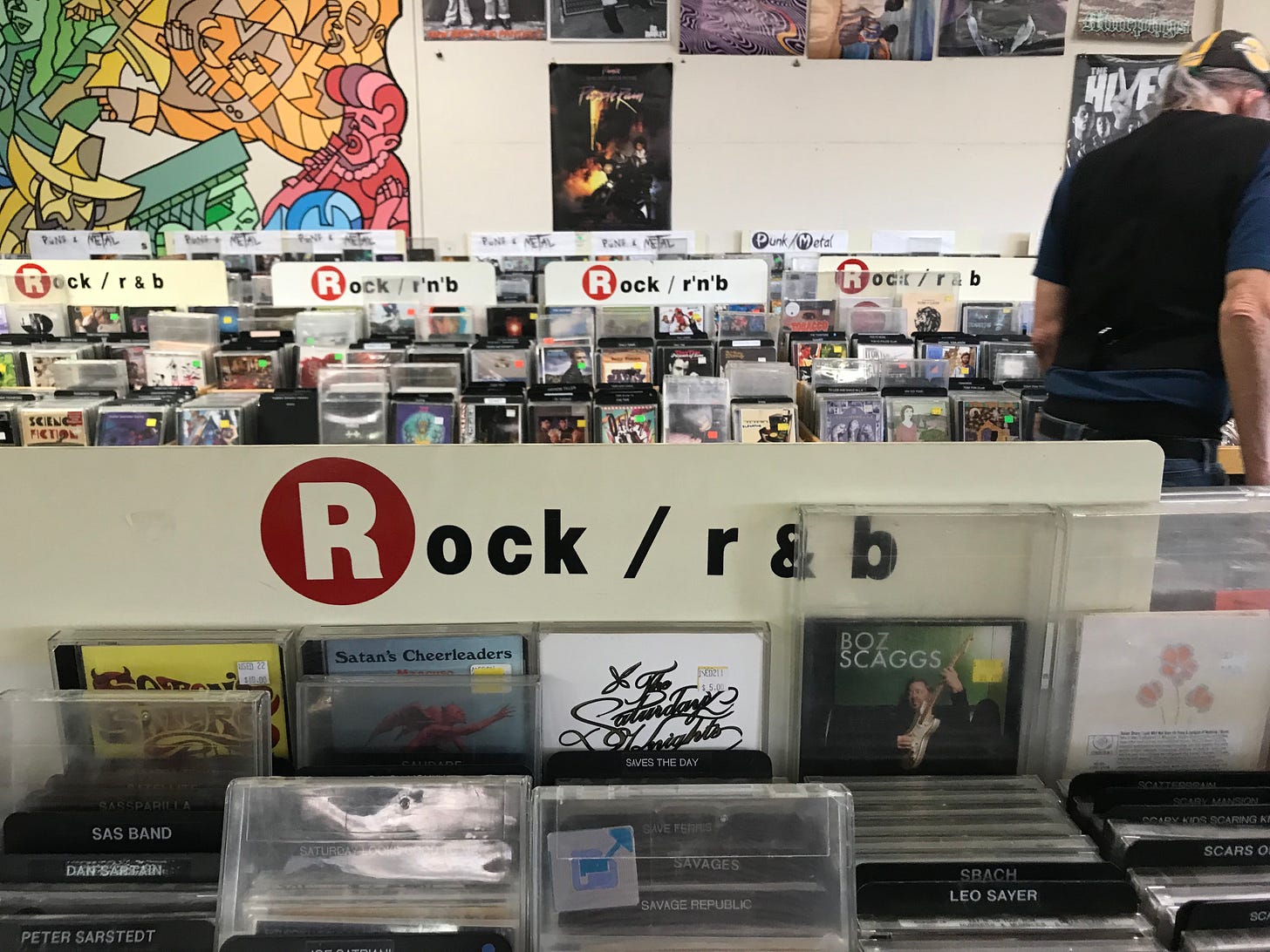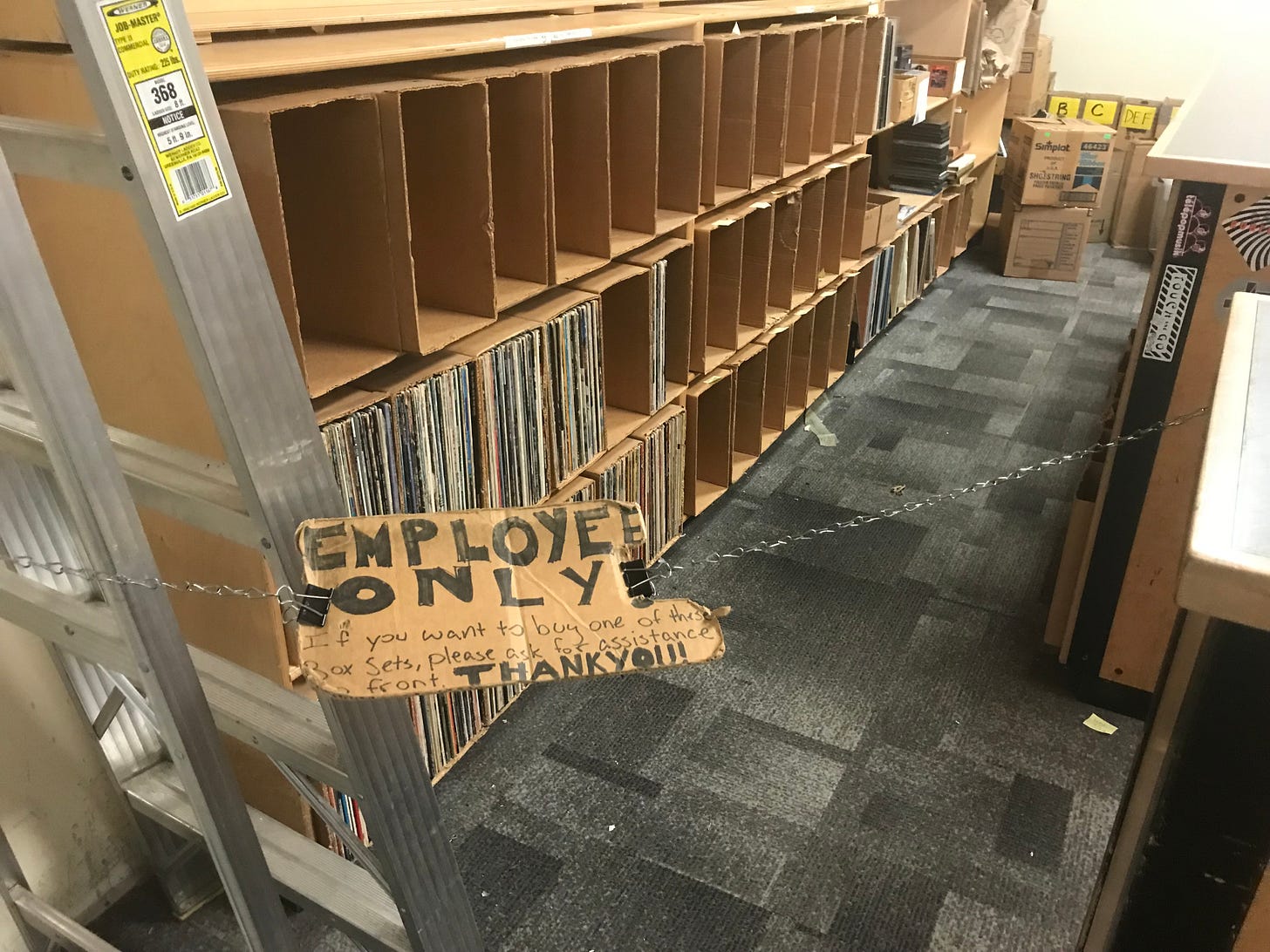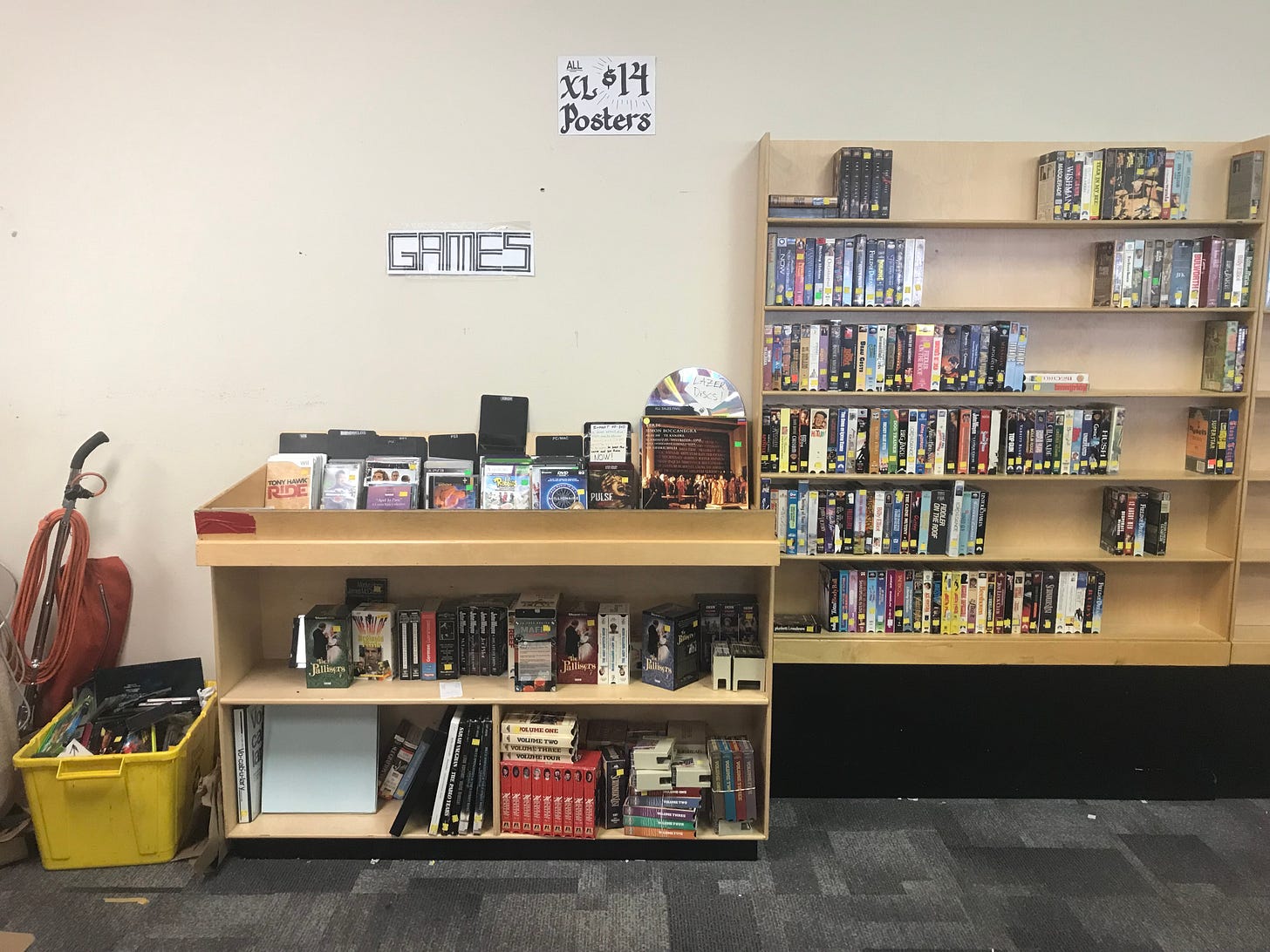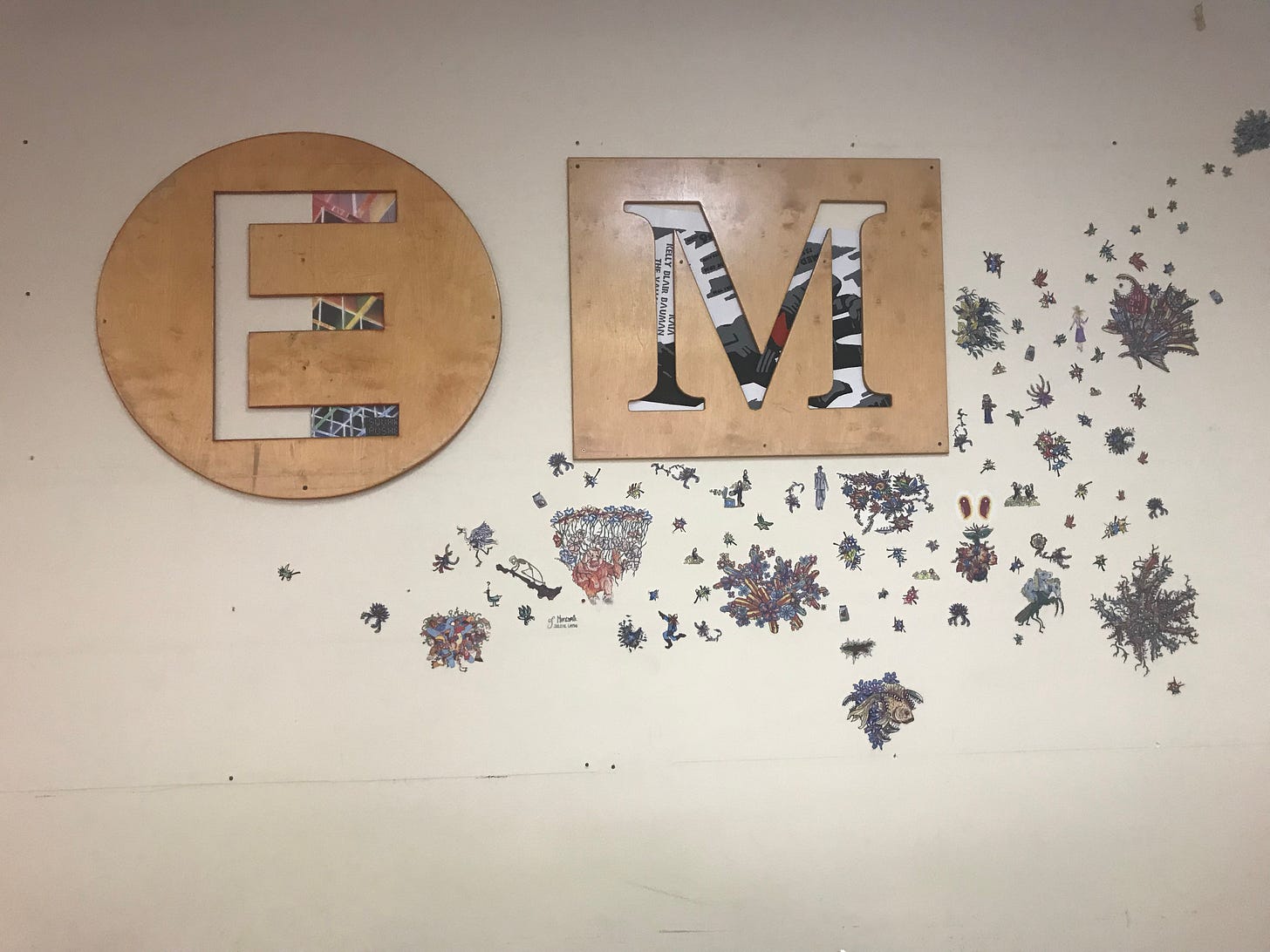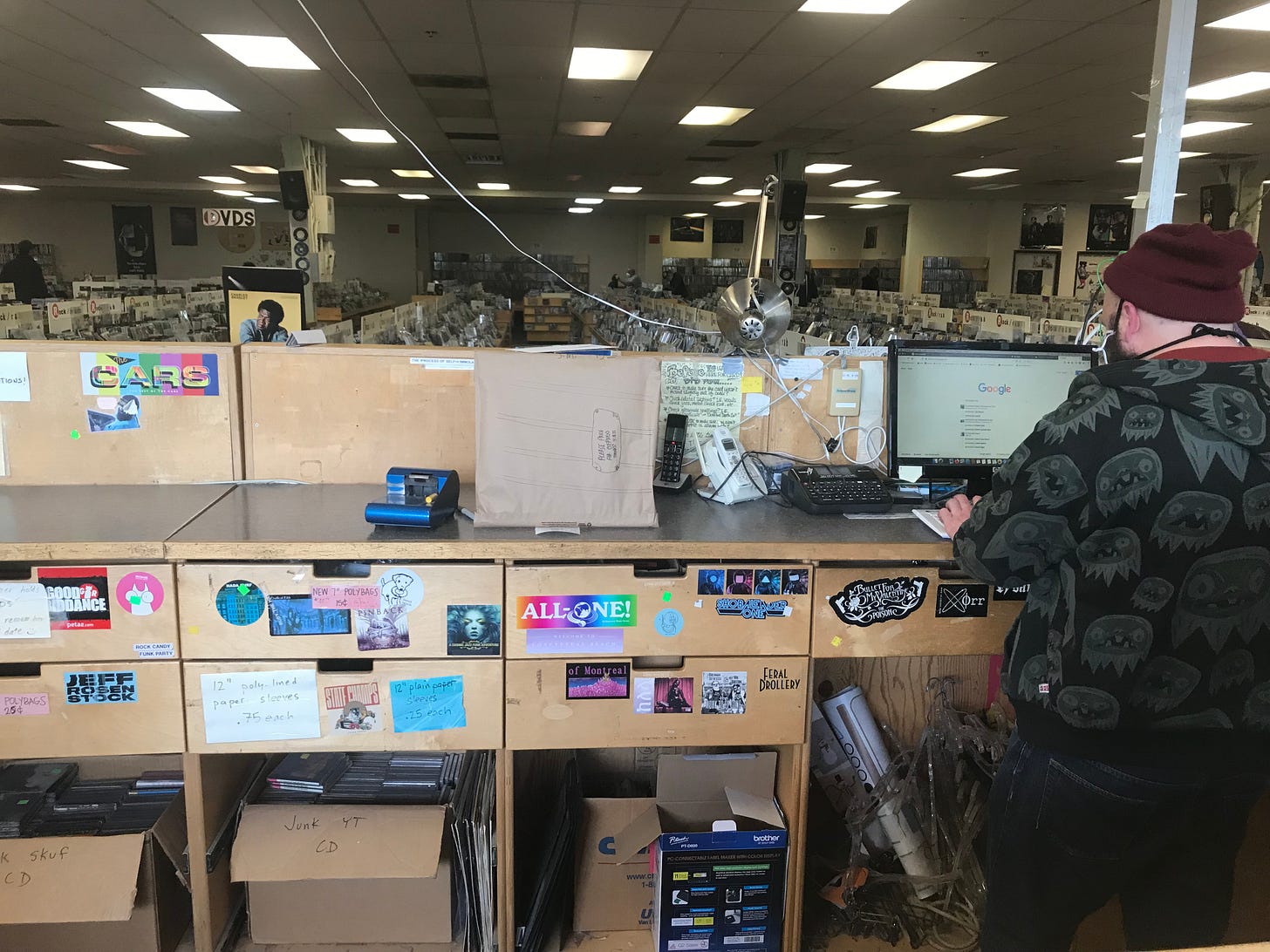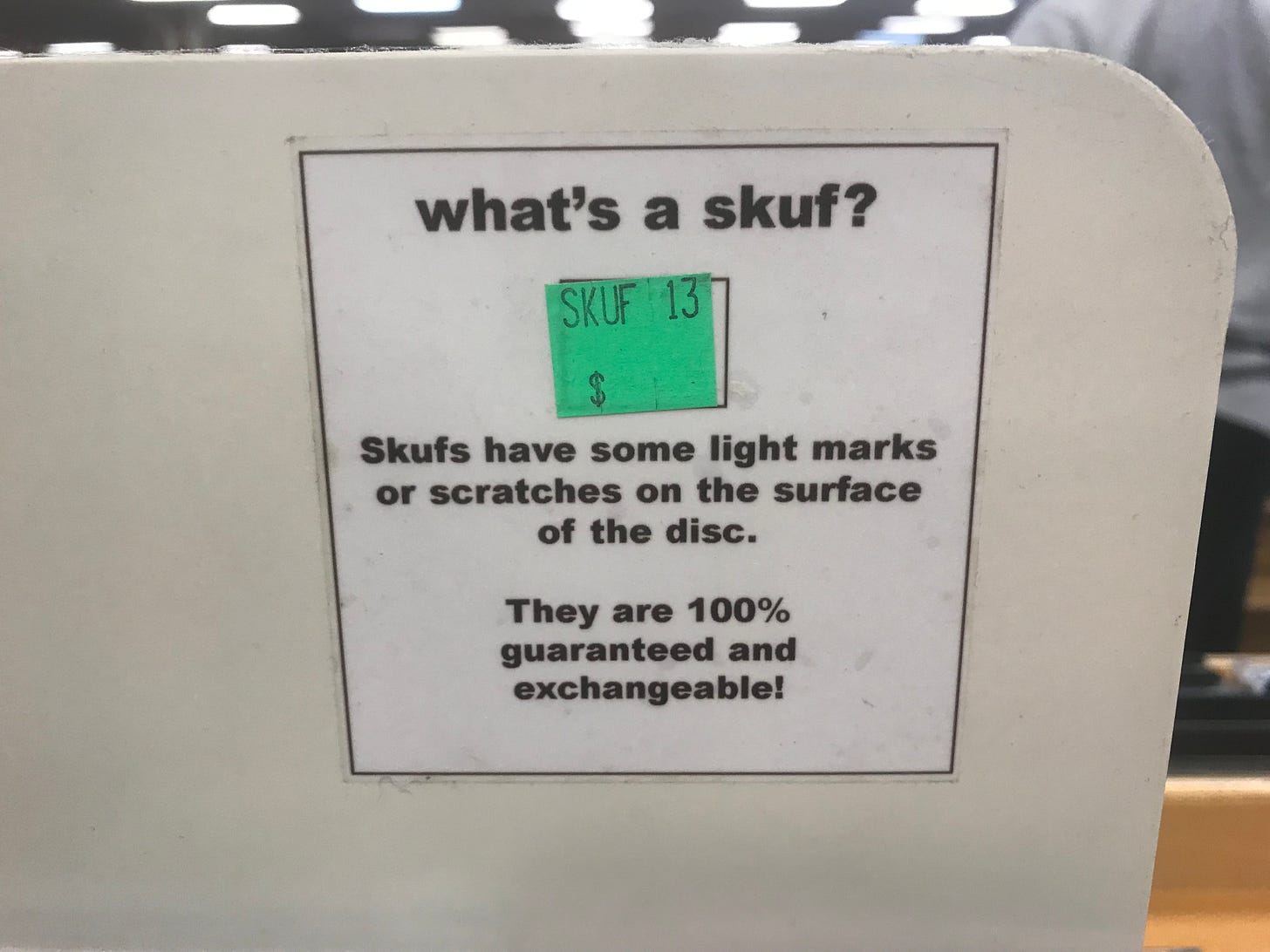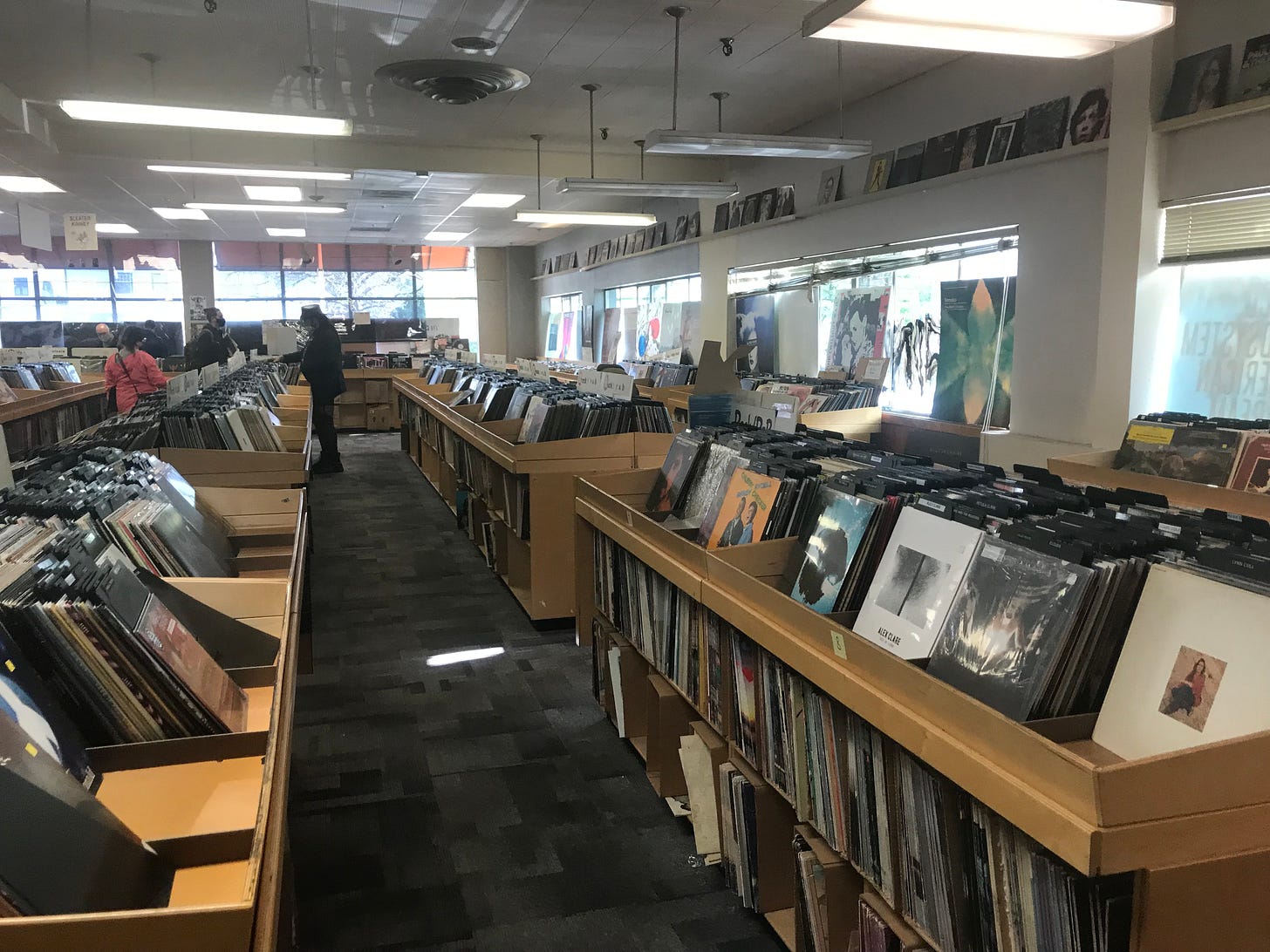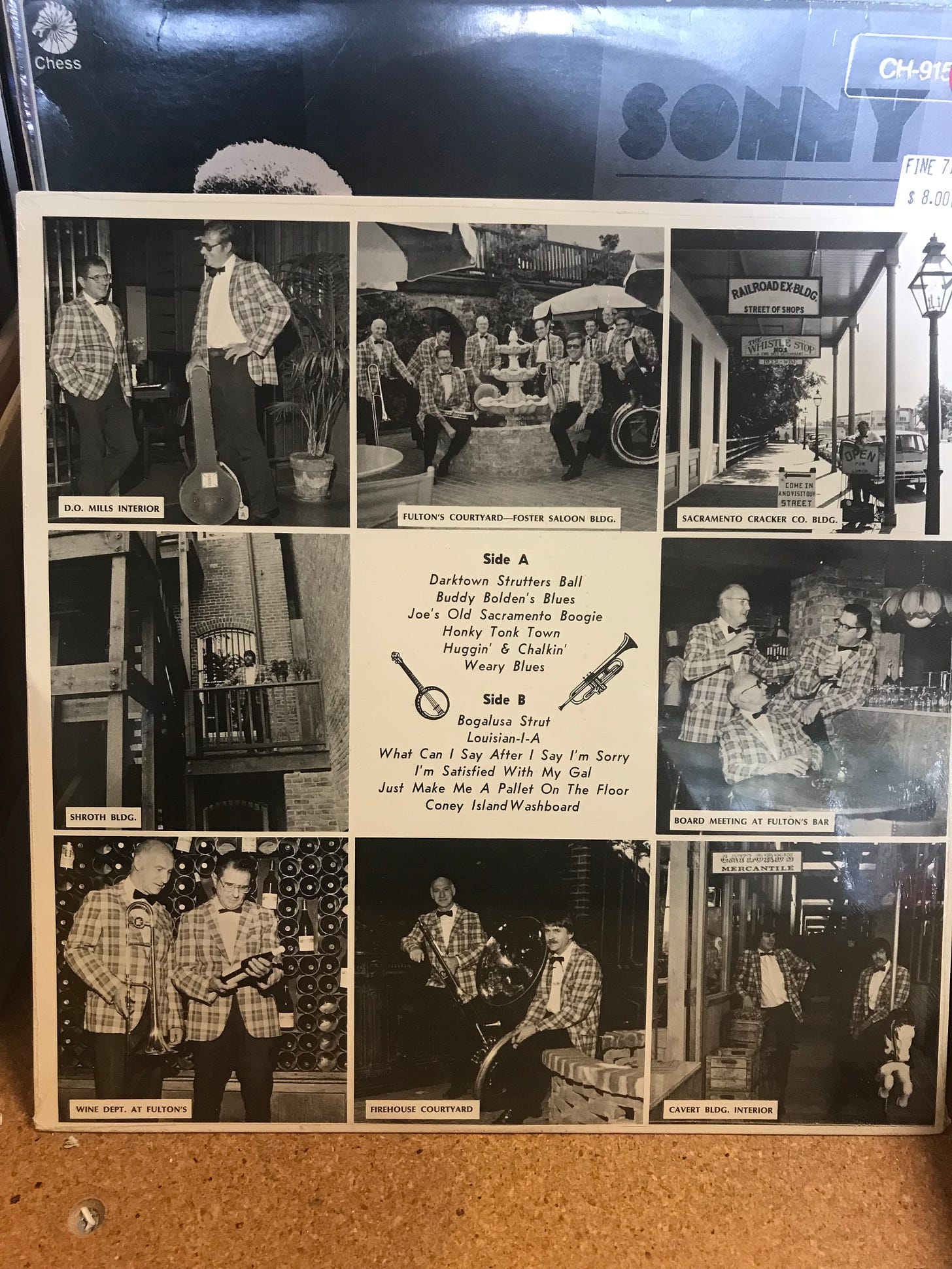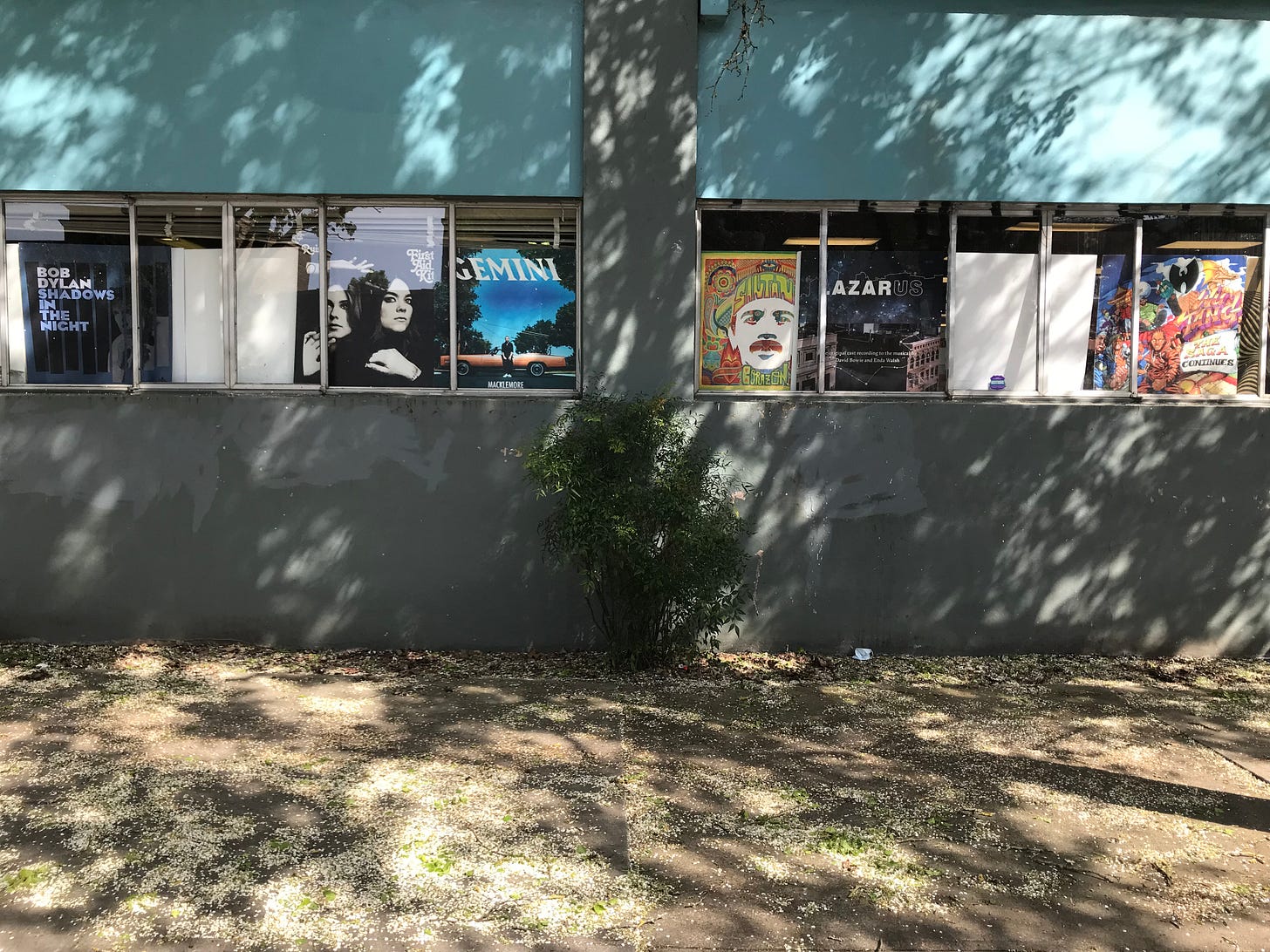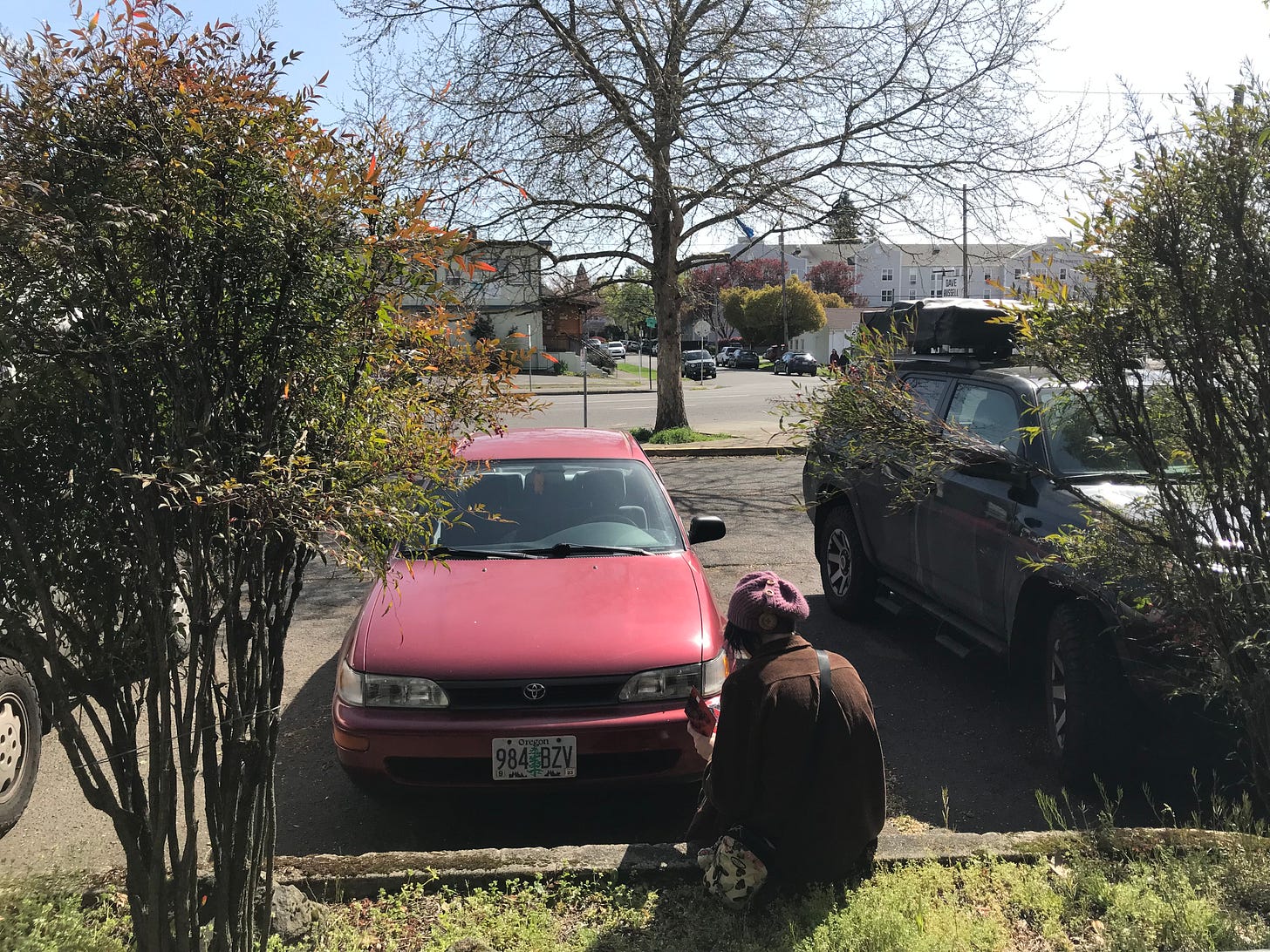Goodbye Everyday Music
The end of a Portland institution didn't come from the economic forces you expect
In the age of digital music and streaming services, it’s easy to see every record store closure as a sign of the times. The 1980s and ’90s were filled with cool little record stores and well-stocked chains like Tower. A lot of us grew up pawing through music magazines and finding new music by searching stores’ displays and listening to what clerks played. Everyday Music, located at 1931 NE Sandy Boulevard, has served Portland, Oregon since the late-90s. They’re closing for good on May 7, 2022. It’s not because of declining business. As one clerk told me, “We’re doing really well.” It’s the building. The city discovered that the ground is poisoned, so the owner will tear the building down on May 15 in order to remove the toxic soil and sell the land for redevelopment.
Built in 1919, the building has hosted a number of businesses through the decades, including a furniture showroom and a photo processing lab, which may have contributed toxins to the soil. But it was the building’s original occupant, pioneering swimwear manufacturer Jantzen Swimwear, whose activities did the most damage, including the release of carbon tetrachloride.
Despite the store’s huge stock of CDs, records, and DVDs, Everyday Music isn’t going to open another store. The profit margins are too thin now, and the company’s co-owners are ready for retirement. Employees won’t be transferred to Everyday Music’s remaining Burnside store, either. “This is it,” one clerk told me. “Get it while you can, because it’s dirt cheap. It’s a fire sale!” Signs inside announced that all CDs and DVDs were 25% off, others as much as 50%, with deeper discounts to come.
A “for sale” sign hovered above the front door for who knows how long, matching the building’s shabby condition to impart a permanent going-out-of-business vibe. The place always seemed tenuous.
“Sales weren’t dropping,” co-owner Sarah Hefte told Willamette Week in March, “but this was going to happen sooner or later. The building’s pretty run down. Anyways, our game plan was always to eventually downsize and retire.” Her husband, co-owner Scott Kuzma, was 63 and had health issues. “It was probably time.”
This April I went into Everyday one last time to say goodbye. I used to take my daughter in there with me. She’s four and loved to run around the giant store, hiding inside displays, having me chase her around the store’s furthest carpeted edges, and enjoying that perfect mix of company and autonomy. I’ll miss that. We grew up here: me between my twenties and forties, her unwittingly as a rainy-day playground. Here are some photos from my last visit. This is how I’ll always remember this store: vast, cluttered, and decorated with the kind of handmade displays that only passionate longtime employees make and then let stand long enough to collect years of dust. Clerks put up stickers. Years pass. No one takes them down. Places like this accrue character that can’t be manufactured.
Outside, posters lined the windows, sitting there long enough to bleached in the infrequent Northwest sun. There was Bob Dylan’s Shadows in the Night near Wu-Tang’s The Saga Continues, Santana’s 1999 album Corazón. The Strokes’ 2013 Comedown Machine, and The Flaming Lips’ 2009 album Embryonic.
When I walked up to the front door, one of the grumpier employees held it open for some customers, which surprised me. He was also so curt. When I told him how sorry I was they were closing, that I’d been a customer for nearly 20 years, he said, “Yeah, it is too bad.” Then he went inside.
“People think there’s no such thing as record stores anymore,” Hefte told Willamette Week. “Actually, Portland still has plenty. There’s just all smaller in size. Everybody has their own niche. It’s worked out well.”
Portland still has Music Millenium, Mississippi Records, Jackpot Records, Little Axe Records, Speck’s Records and Tapes, Vinyl Resting Place, 2nd Avenue Records, Beacon Sounds, Clinton Street Record and Stereo, Exiled, and Platinum. They come and go, but listeners remain.
Thank you, Everyday Music.



